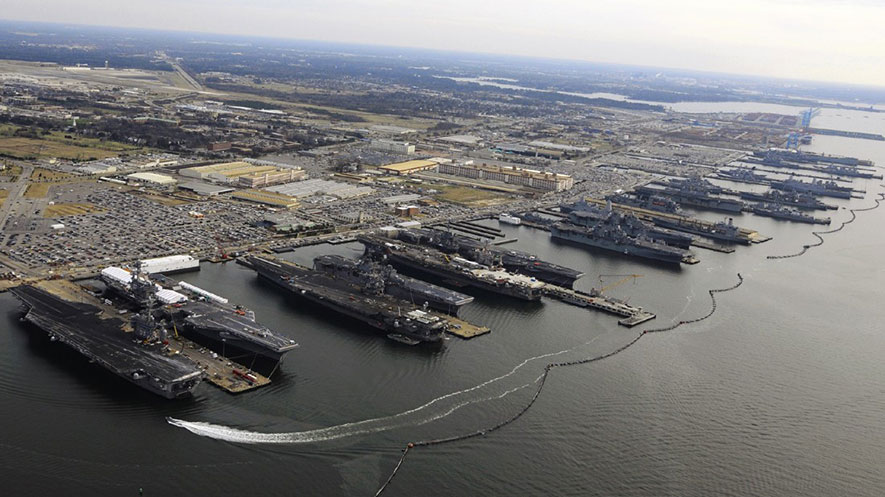In a world where terrorism and nuclear arms races abound, many Americans don’t link climate change and national security.
However, military leaders want you to know that changing climate conditions do pose a threat to our nation — as they acknowledged in the 2014 Quadrennial Defense Review — and that we can’t prepare properly for its effects without knowing more about the ocean and atmosphere. In a joint briefing 27 April 2017 held by the Center for Climate Security and the American Security Project, “Climate Change and the Risks to National Security,” senior military and national security experts Vice Admiral Dennis McGinn, USN (Ret.), Brigadier General Stephen Cheney, USMC (Ret.), and Brigadier General David McGinnis, USA (Ret.) discussed how climate change effectively alters the environment in which the military operates.
The Department of Defense (DOD) prepares for a range of threats to America’s national security, from terrorism to disaster response. Climate change, the panel agreed, is an inherent danger to stability worldwide. McGinn described climate issues as “a bedrock for all our national security.”
Right now, he said, there is a “pressure cooker” of tensions around the world consisting of fragile governments and global terrorism, which is exacerbated by the changing climate. Cheney agreed, postulating that climate-triggered drought and wheat shortages were a factor in the Arab Spring. Additionally, he pointed out that the global refugee crisis is not just caused by war; one foot of sea level rise can generate 20-30 million refugees whose homes have been destroyed. McGinnis highlighted that the Seychelles, an island archipelago, will be lost to rising seas within the century.
Domestically, the panel described how our nation’s military infrastructure is at risk. McGinn explained that if ships can’t sail – perhaps due to ports damaged from sea level rise or extreme weather events – military aid can’t reach those in need. As far as maintaining preparedness, Cheney explained that the military can’t afford an “out of sight, out of mind” perspective that many have concerning climate change. Instead, they must plan and prepare for any event, such as hurricanes that can damage ports and ships. McGinnis added that the U.S. is going to lose one-third of both the Virginia coast and the state of Florida to sea level rise.
When questioned about how the military views their use of fossil fuels, McGinn stated that while their importance is recognized by the panel, so, too is the realization that their downsides far exceed their benefits, especially on a global scale. Cheney cited the DOD as the top consumer of fossil fuels in the U.S. We need to “get off this tether,” he said, and downsize dependence upon them.
On the subject of the president’s proposed budget, McGinn was most concerned with the cuts for the Department of Commerce, specifically its impacts on detailed weather forecasts essential to military operations. He had strong words to sum up the risks of climate change, stating, “We are messing with Mother Nature, and she will mess with us.”





